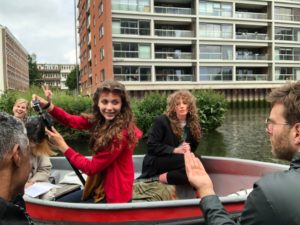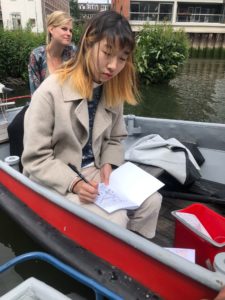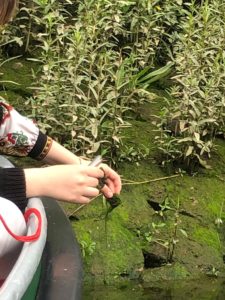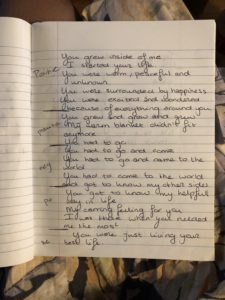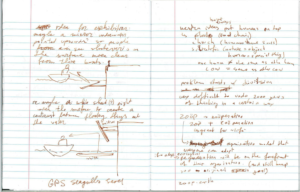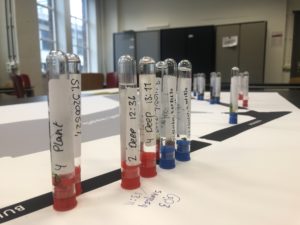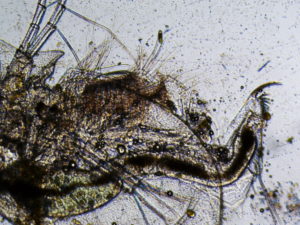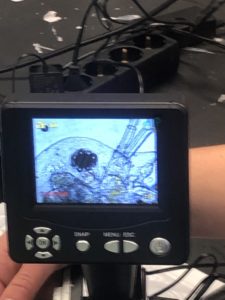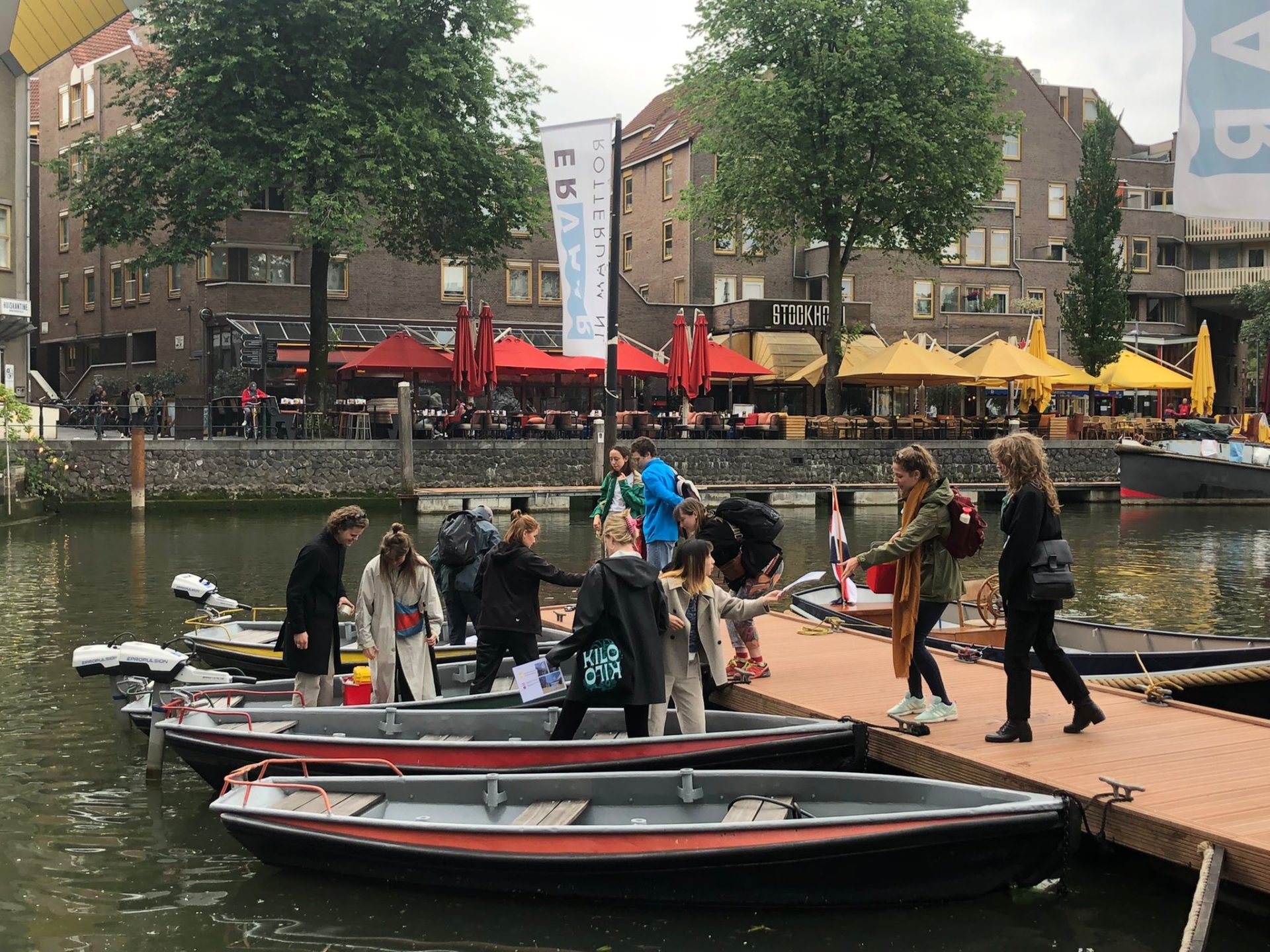- Learn from the Living Library
WATER FIELD LAB – MAAS EDITION
The WATER FIELD LAB – MAAS EDITION elective is the second edition of the Water FieldLab that it took place on specific location in Rotterdam – the waterways around the WdKA: Leuvehaven, Bierhaven, Rederijhaven, Scheepmakershaven, Wijnhaven, Oude Haven, Haringvliet, Boerengat, and Buizengat. The specific context, the experts and stakeholders connected to the Maas are providing specific input. Through experimentation and research on site the aim is to get to know the challenges of this local setting.
Elective Presentation PDF (2,3M)
CONTEXT
Throughout the centuries, due to the activities that happen in and around Rotterdam Port and climate change, the water ecosystems in this environment have changed completely. We have been exploiting the Maas waters for our human-centred economic benefit, resulting in threatening the environment which leads to the lack of biodiversity of fauna and flora.
CHANGING PERSPECTIVES
How can we bring awareness, care to the river, and transform the way we interact with it?
Through the centuries the industrial activities on the Maas River have changed its landscape above and underwater which decreased the biodiversity in this specific ecosystem. The whole river becomes a research environment for participating students that will be introduced to Nature Inclusive Design, zooming in and out, from micro to macro.
Students have worked with small groups and created a campaign to make the Maas become a real entity, in which the tutors have engaged the students to give voice for this endangered ecosystem. Some questions were made for the students to reply during their research and project development:
Can we consider Rotterdam rivers as a being? More-than-humans?
What if we design together and for other species?
Would it be possible to add real value for the river and all the life which is still striving to live there?
Who is the Maas?
The aim of this elective is to give inputs for the students to think and execute ideas of how to integrate nature in the design, shifting the human-centred-design perspective to a direction where the living is present. The students investigated the species that are in the plan for re-integration in this landscape.
Assignment
How can we bring awareness to the Nieuw Maas?
Within this 5-days elective, students were asked to develop:
A ‘floating journal’: each day you will create drawings, photographs, make notes, collages’, recordings etc. We would like you to challenge you to illustrate your experiences, what you have learned and what has brought your attention on that specific day. Please note that this can be anything; NOTHING IS WRONG!
Next to this individual assignment we would like you (and your group) to contribute to an ‘interactive’ map which visualizes your explorations and documentation of the the waterways around the WdKA; Leuvehaven, Bierhaven, Rederijhaven, Scheepmakershaven, Wijnhaven, Oude Haven, Haringvliet, Boerengat and Buizengat.
For the final presentation on Monday 13th, we would like you (and your group) to create a concept/poster/campaign/installation/video etc.) that generates awareness of the biodiversity and/or shows the importance of the water (Nieuw Maas) for the city and its residents.
Program:
Tuesday 7/6:
On the first day, tutors Aldje van Meer, Ivan Henriques and guest artist Mark IJzerman, had a one-hour introduction about the elective for the students. We divided them into smaller groups, and we had four boats to explore the waterways around WDKA in a 5-hour boat trip. While students were collecting water samples, Mark Ijzerman was explaining his new project where he collaborates with sessile, and also experimenting with real time underwater sounds. Students were equipped with diverse cameras, sound recorders and scientific tubes to collect as much data as possible to inspire them in their creation. They have collected different sorts of samples: water, sound, video, photos, organisms, and sediments from above and underwater.
Wednesday 8/6
Researcher and environmental lawyer Jessica den Outer was our second guest, who explained about the rights of nature with focus in the Maas River, and after her presentation she gave a theatrical workshop to be realized with the students in duos: one student play role a human and the other student a non-human in order to create a dialog. In a second moment a collective interactive map, where they have located their samples on a printed map. Afterwards, together with tutor Ivan Henriques and Sandrine D’Haene, students were invited to look at the water samples under the microscope. Many microorganisms were found, that gave them more insights to which direction their final awareness assignment would be.
Thursdays 9/6
The students were working in class developing their assignment with the research they have done so far.
Friday 10/6
Prior to the last elective day, tutor Aldje van Meer met the students at the New Institute, meeting Klaas Kuitenbrouwer and get to know about the new Tuin en Zoöp. After the meeting the students returned to WDKA to continue their assignment.
Monday 13/6
In the last elective day, the students presented their inspiring research and project, with diverse ideas: a video-poem projection, algae beer, a Water Museum re-using an old silo located at Buizengat.
Students final presentation:
https://livingstations.wdka.nl/wp-content/uploads/2022/06/presentation-in-het-water.pdf
